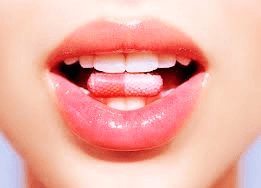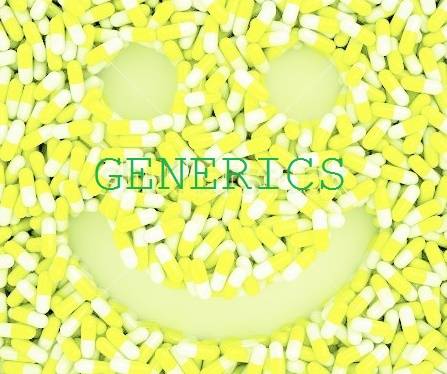Shareholders Beam as Sun Buys Ranbaxy
MUMBAI – India’s largest drug maker by market value, Mumbai-based Sun Pharmaceutical Industries Ltd. (BOM:524715) announced Sunday that it will acquire Ranbaxy Laboratories Limited (BOM:500359)from its parent Daiichi Sankyo Co. Ltd in an all-stock deal worth $3.2 billion, and the merged entity will be India’s largest drug maker and the fifth-largest generic drug company in the world by revenue and India’s largest pharma firm by market share. The deal, which will also see Sun assume $800 million of debt on Ranbaxy’s books, needs shareholder and regulatory clearances.
Sun Pharma said in a statement that Ranbaxy’s shareholders will get 0.8 shares of Sun Pharma for each Ranbaxy share and expects the transaction to be completed by December. Tokyo-based Daiichi Sankyo (TYO:4568), which holds a 63.4 percent stake in the Gurgaon-based Ranbaxy, will receive a 9 percent stake in the merged entity, and will have the right to nominate a director to its board. The combined unit will have operations in 65 countries with 47 manufacturing units and is expected to generate revenues worth $4.2 billion.
The transaction, which is expected to close in nine months time after securing all regulatory approvals, values Ranbaxy at 2.2 times its $1.8 billion revenues for 2013 or about Rs 457 per share. Shareholders of Ranbaxy, including Daiichi which owns a 63.5% stake, will get 0.8 shares of Sun for every share they hold. Post-deal, Daiichi will be Sun Pharma’s single largest shareholder after Shanghvi himself, with a 9% stake and a seat on the company’s board.
The combined unit will be the world’s fifth largest generics firm with annual revenues of $4.2 billion and a global footprint extending to 65 countries, including the US where the two firms have combined revenues of more than $2 billion and 629 generic drug approvals. In India, Sun which was at number 2 , will overtake Abbott Laboratories ABT -1.19% to become the largest pharma firm with domestic sales of $1.1 billion.
“Ranbaxy has a significant presence in the Indian pharma market and in the US where it offers a broad portfolio of ANDAs (Abbreviated New Drug Application for a U.S. generic drug approval for an existing licensed drug) and first-to-file opportunities. In high-growth emerging markets, it provides a strong platform which is highly complementary to Sun Pharma’s strengths. We see tremendous growth opportunities and are excited with the prospects to create lasting value for both our shareholders through a successful combination of our franchises,” Dilip Shanghvi, managing director of Sun Pharma, said in a joint statement with Ranbaxy.
Ranbaxy, which is currently banned by the FDA from exporting to the U.S. from three of its India-based units, paid nearly $500 million in fines to the U.S. regulator last year. In March, the company recalled two batches of its generic version of the cholesterol drug, Lipitor, while Sun Pharma had recalled a batch of its generic version of the diabetes medicine, Glumetza.
Last month, the U.S. imposed a ban on imports from a division of Sun Pharma, saying that the unit was not “operating in conformity with good manufacturing practices,” according to BBC.
The U.S. Attorney for the District of New Jersey had sent a subpoena in March to Ranbaxy asking the company to produce documents related to its Toansa facility, the company said in a release on its website. Toansa is one of the plants that the company has halted export shipments from, affecting exports to other key markets including Europe, local media reports said in February.
At the time, the company had said, in a statement, that it was scrutinizing the processes at all its manufacturing units, adding: “This voluntary decision was taken as a precautionary measure and out of abundant caution to better allow us to assess and review the processes and controls. We will resume shipments after reassuring ourselves about the processes and controls at these facilities.”
Japan-based Daiichi Sankyo will indemnify the expenses from the subpoena, according to the joint statement released Sunday announcing the deal.
Citigroup Inc. (NYSE:C) and Evercore Partners (NYSE:EVR) are advising Sun Pharma on the transaction while Ranbaxy is being advised by ICICI Securities (BOM:532174).
 “We believe this transaction brings significant value to all Ranbaxy shareholders. Sun Pharma has a proven track record of creating significant long-term shareholder value and successfully integrating acquisitions into its growing portfolio of assets. We are confident that Sun Pharma is the ideal partner to help us realize our full potential and are excited to participate in future value creation opportunities,” Arun Sawhney, managing director and CEO of Ranbaxy, said, in the joint statement.
“We believe this transaction brings significant value to all Ranbaxy shareholders. Sun Pharma has a proven track record of creating significant long-term shareholder value and successfully integrating acquisitions into its growing portfolio of assets. We are confident that Sun Pharma is the ideal partner to help us realize our full potential and are excited to participate in future value creation opportunities,” Arun Sawhney, managing director and CEO of Ranbaxy, said, in the joint statement.
Shanghvi has established a solid track record as a turnaround specialist. This latest purchase is the pharma tycoon’s biggest since he set up Sun in 1993 as a maker of psychiatric drugs. He went on to build the company with a string of acquisitions- 16 including Israel’s Taro Pharmaceuticals for which Shanghvi fought a hard-won battle to take control-that were successfully integrated with the mother ship.
Daiichi Sankyo on its part, has faced a rocky road in India since 2008 when it entered the market with a bang taking control of Ranbaxy from the billionaire brothers Malvinder and Shivinder Singh, paying $4.6 billion or Rs 737 per share. Ranbaxy had been founded by the brothers’ grandfather and the sale of such an iconic domestic player had set the stage for other buyouts of Indian units by multinational pharma firms. In 2010, billionaire Ajay Piramal sold his domestic formulations business to Abbott Labs for $3.8 billion.
Since then, Ranbaxy has had a host of problems with the US Food and Drug Administration which culminated in a ban of certain drugs and a $500 million fine for alleged manufacturing deficiencies at its Indian factories. The dispute had caused bad blood between Daiichi and the Singh brothers with the Japanese company accusing the Singhs of misrepresentation. Daiichi has agreed to indemnify Sun and Ranbaxy for certain costs and expenses relating to its regulatory skirmishes in the US.
It’s believed that Daiichi was looking to sell the troubled Ranbaxy for a while. Analysts say that the price at which Daiichi has agreed to sell its stake to Sun-a 38% discount to what it had paid in 2008 to buy it- implies that it’s somewhat of a distress sale and Shanghvi has got the better side of the bargain. Speaking to television channel CNBC-TV18, Ajay Piramal said that Sun is more competent to handle Ranbaxy’s FDA problems. In March, Sun itself received an import alert from the FDA, banning the export of drugs from its factory in Gujarat, a move that triggered a fall in Sun’s shares.
Sun Pharma’s stock gained had gained as much as 10% in trading on Monday, settling at an increase of almost 3% this morning, since the announcement while Ranbaxy’s stock had lost more than 4 percent in mid-morning trade on the BSE Sensex.
 The Global Calcuttan Magazine
The Global Calcuttan Magazine 